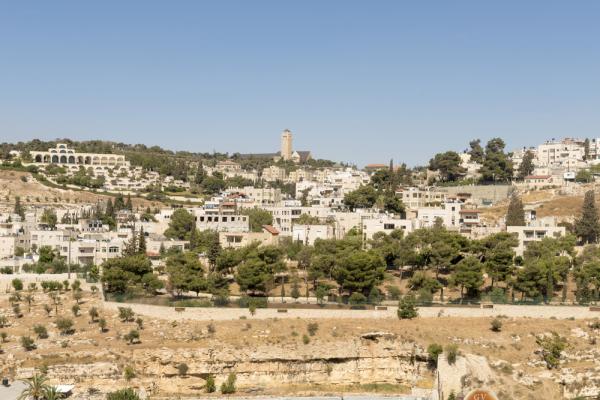THE ROAD WAS bumpy—full of deep holes and harrowing possibilities for slippage down a roadside slope. My heart raced as I considered the possible headline back home: Bus tumbles down Israeli slope—50 Americans killed by Palestinians. Yes, that would likely be the headline, but it wouldn’t tell the story.
As our bus rolled through this stretch southwest of Bethlehem, my heart raced as Amal Nassar explained that the area had been declared property of the Israeli state decades ago. Since then, Israel built smooth roads, but we weren’t allowed on them. To the right of our bouncing bus was an adjacent highway reserved for Israelis—Palestinians are restricted from driving on these Israeli highways, relegated to the old dirt roads.
Our bus wound around sharp corners, up a hill until it came to a stop. There didn’t seem to be any building structures in sight so I wondered why we’d stopped. Nassar explained that the Israeli government had set large boulders in the middle of the road to block traffic from reaching her family’s farm, so we would have to hike the rest of the way.
We stepped off the bus and onto a dirt road strewn with rocks and trash—old tires, plastic bags, plastic bottles. When the Israeli government claimed the land, it ceased basic services such as trash pick-up, electricity, and running water to Palestinians in the area. It was an effort to make life so difficult that the Palestinians would choose to leave—in modern human rights terms, the world calls this ethnic cleansing. Nassar explained that many families have chosen to leave. Once they are gone for three years, the Israeli government claims that their property has been abandoned and that the state then has legal grounds to claim the power of eminent domain over the land.
Read the Full Article

